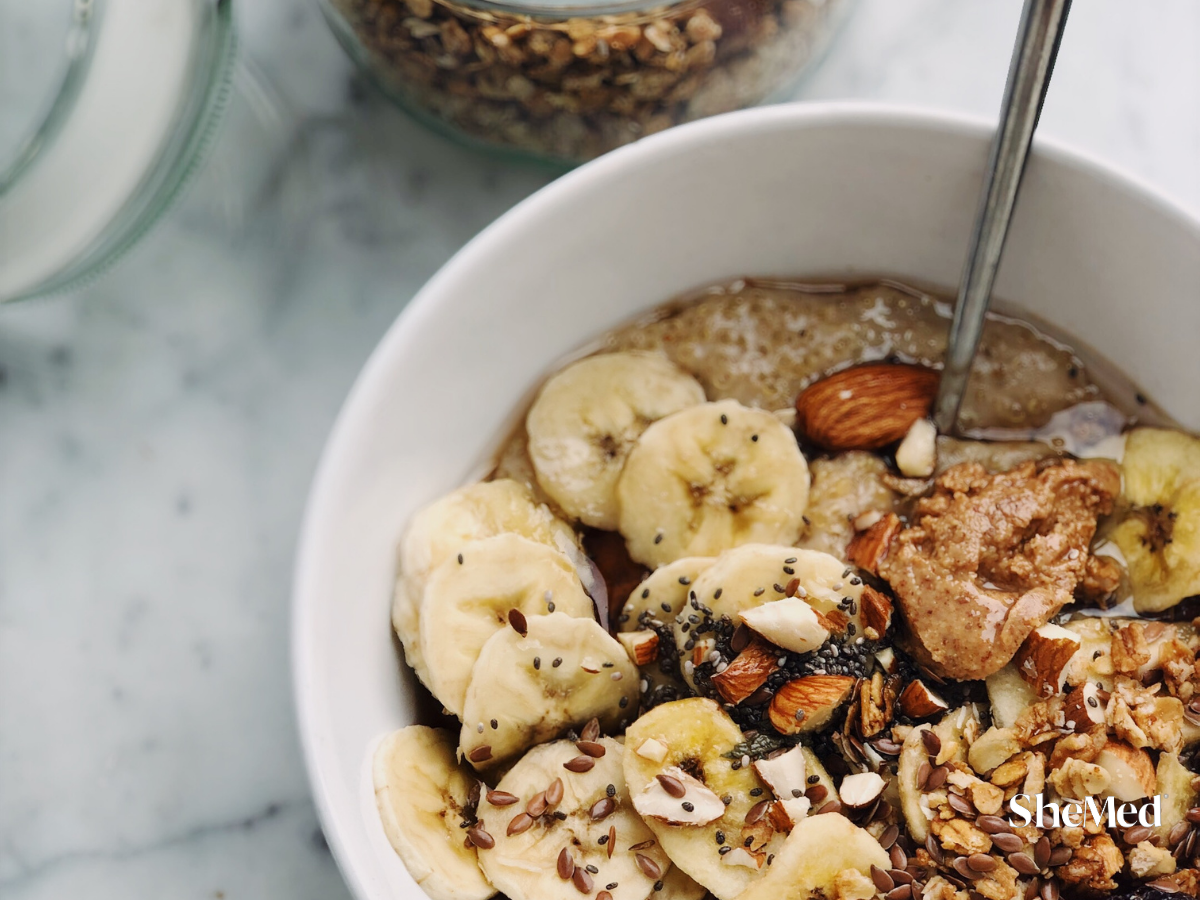
Sugar addiction is more than just an occasional craving for sweets; it's a dependence that can have significant repercussions on your health. In the United Kingdom, high sugar consumption has been linked to an increase in obesity, type 2 diabetes, and heart disease. According to the National Health Service (NHS), adults should consume no more than 30g of free sugars a day, yet many exceed this limit.
British women, in particular, face unique challenges when it comes to sugar addiction. A combination of stress from balancing work and family life, social expectations to indulge during gatherings, and the pervasive availability of sugary treats make reducing sugar intake a daunting task. Understanding these hurdles is essential in taking the first steps towards a healthier lifestyle.
Understanding Sugar Addiction
A. What is Sugar Addiction?
Sugar addiction refers to the compulsive need to consume sugar-rich foods and beverages, often leading to adverse health effects. Unlike natural sugars found in fruits and vegetables, added sugars provide no nutritional benefit and can lead to a cycle of cravings and temporary satisfaction.
Physiological Effects
When you consume sugar, your body experiences a spike in blood glucose levels. This triggers the release of insulin to help cells absorb the glucose. Frequent spikes can lead to insulin resistance, a precursor to type 2 diabetes. Moreover, excessive sugar intake can lead to weight gain as excess glucose is stored as fat.
Psychological Effects
Sugar impacts the brain's reward system by releasing dopamine, a neurotransmitter associated with pleasure and reward. This mechanism is similar to how addictive drugs affect the brain, leading to repeated cravings for that pleasurable feeling.
The Reward System Explained
The brain's reward system is designed to promote behaviours essential for survival, like eating. Sugar hijacks this system by triggering dopamine release, reinforcing the desire to consume more sugar. Over time, more sugar is needed to achieve the same dopamine response, leading to increased consumption.
B. Signs and Symptoms of Sugar Addiction
Recognising sugar addiction is the first step towards overcoming it. Common signs include:
- Physical Symptoms:
- Frequent fatigue or lethargy
- Weight gain, particularly around the abdomen
- Headaches or migraines
- Emotional Symptoms:
- Cravings for sugary foods even when not hungry
- Feeling guilty after consuming sweets
- Mood swings or irritability when unable to consume sugar
Self-Assessment Quiz
Answer the following questions to assess your relationship with sugar:
- Do you often crave sweets after meals?
- Do you find it hard to stop at just one piece of a sugary treat?
- Do you use sugary foods to cope with stress or emotions?
- Have you attempted to cut down on sugar but found it difficult?
If you answered "yes" to two or more questions, you might be experiencing sugar addiction. For personalised advice, consider consulting a healthcare professional.
The Impact of Sugar Addiction on Women's Health
A. Increased Risk of Chronic Diseases
Sugar addiction significantly increases the risk of developing chronic health conditions:
Type 2 Diabetes
Excessive sugar consumption can lead to insulin resistance. According to Diabetes UK, over 4.9 million people in the UK have diabetes, with type 2 accounting for about 90% of cases. Women are particularly at risk due to hormonal factors affecting insulin sensitivity.
Heart Disease
High sugar intake contributes to obesity, high blood pressure, and inflammation—all risk factors for heart disease. The British Heart Foundation notes that heart disease is the leading cause of death among women in the UK.
Polycystic Ovary Syndrome (PCOS)
PCOS is a hormonal disorder common among women of reproductive age. Insulin resistance plays a key role in its development. Reducing sugar intake can help manage PCOS symptoms, as highlighted by the NHS.
B. Hormonal Imbalances
Sugar addiction can wreak havoc on hormonal balance:
Premenstrual Syndrome (PMS)
High sugar intake can exacerbate PMS symptoms by causing rapid fluctuations in blood sugar levels, leading to mood swings and irritability.
Irregular Periods
Insulin resistance from excessive sugar can interfere with ovulation, leading to irregular menstrual cycles.
C. Mental Health Concerns
There is a strong correlation between sugar intake and mental health issues:
Anxiety and Depression
A study published in the journal Scientific Reports found that high sugar consumption is associated with an increased risk of depression in adults.
Mood Swings
Fluctuating blood sugar levels can lead to irritability and sudden mood changes. Stabilising sugar intake helps maintain a balanced mood throughout the day.
Mental Health Benefits of Reducing Sugar
The mental health charity Mind emphasises that a balanced diet low in added sugars can improve mood and reduce symptoms of anxiety and depression.
Strategies to Cut Sugar Addiction
- Gradual Reduction: Slowly decrease sugar intake to minimise withdrawal symptoms.
- Balanced Nutrition: Focus on fibre, protein, and healthy fats to stabilise blood sugar levels.
- Mindful Eating: Practice awareness of food choices and hunger cues.
- Sleep Prioritisation: Get adequate sleep to regulate appetite-controlling hormones.
- Environmental Changes: Remove sugary foods from your surroundings and keep healthier alternatives available.
- Food Pairing: Consume sugary foods with high-fibre or protein-rich options to slow sugar absorption.
- Portion Control: Be mindful of serving sizes when indulging in sweet treats.
- Natural Alternatives: Use spices like cinnamon or vanilla extract for sweetness without added sugars.
- Stay Hydrated: Drink water or unsweetened beverages to avoid mistaking thirst for sugar cravings.
- Regular Meals: Eat balanced meals throughout the day to maintain stable blood sugar levels.
Implementing these strategies can help reduce sugar intake and improve overall health. Remember, it takes about 3-4 weeks to break a habit, so be patient and persistent in your efforts.
Conclusion
Overcoming sugar addiction is a challenging journey, but with the right knowledge and resources, it's entirely achievable. By understanding the impact of sugar on your health, implementing gradual changes, and seeking support when needed, you can take control of your cravings and enhance your overall well-being. Remember, every small step towards reducing sugar counts. Start your journey today and embrace a healthier, happier you.
References
- British Dietetic Association. (n.d.). Find a Dietitian. Retrieved from https://www.bda.uk.com/
- British Heart Foundation. (n.d.). Women's Heart Health. Retrieved from https://www.bhf.org.uk/
- British Nutrition Foundation. (n.d.). Healthy Eating. Retrieved from https://www.nutrition.org.uk/
- Diabetes UK. (n.d.). Diabetes Statistics. Retrieved from https://www.diabetes.org.uk/
- Mind. (n.d.). Food and Mood. Retrieved from https://www.mind.org.uk/information-support/tips-for-everyday-living/food-and-mood/about-food-and-mood/
- National Health Service. (n.d.). How Does Sugar in Our Diet Affect Our Health?. Retrieved from https://www.nhs.uk/live-well/eat-well/how-does-sugar-in-our-diet-affect-our-health/
- National Health Service. (n.d.). Polycystic Ovary Syndrome (PCOS). Retrieved from https://www.nhs.uk/conditions/polycystic-ovary-syndrome-pcos/
- National Health Service. (n.d.). Sleep and Tiredness. Retrieved from https://www.nhs.uk/live-well/sleep-and-tiredness/
- Sport England. (n.d.). Stay Active. Retrieved from https://www.sportengland.org/jointhemovement
Take charge of how you look and feel.
Backed by science. Guided by experts.
SheMed’s medical weight loss programme combines expert care and science-backed treatment to help you feel and look your best — for life.
SheMed’s medical weight loss programme combines expert care and science-backed treatment to help you feel and look your best — for life.
The content on the SheMed blog is provided for general informational and educational purposes only. While SheMed provides professional weight loss services and strives to ensure the information shared is accurate and up to date, we make no representations or guarantees as to its accuracy, completeness, or timeliness. This content should not be taken as personal medical advice or a substitute for consultation with a qualified healthcare provider. Always speak with your doctor or licensed medical professional about your individual health or medical needs before starting any new treatment or programme. Never disregard or delay seeking professional medical advice because of something you have read on this site. SheMed is not responsible for any actions you may take based on the information provided in this blog.
Subscribe to our Newsletter
Thank you! Your submission has been received!
Oops! Something went wrong while submitting the form.


